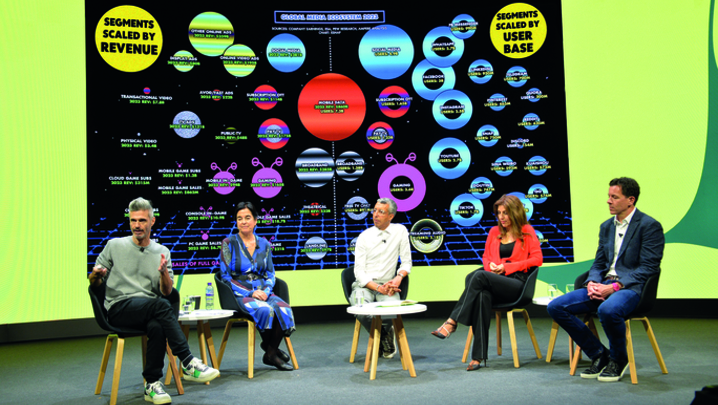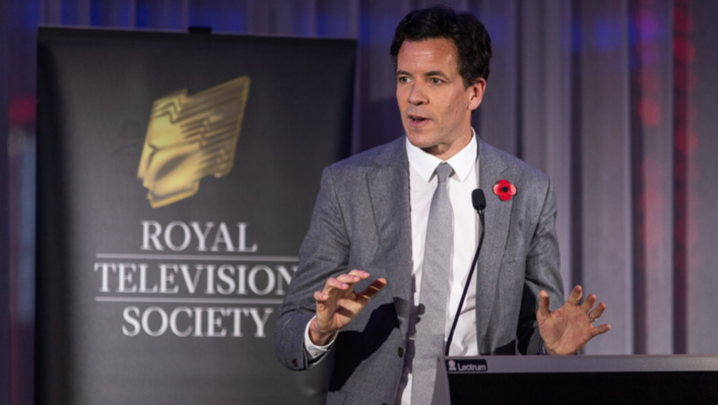Stephen O’Donnell enjoys the glamour of A-listers filming in Scotland but warns this activity must be underpinned by local production.
Scotland’s screen sector is buzzing. The daily lives of ordinary Glaswegians have recently been interrupted by the roar of Batgirl’s Bat Bike and ticker-tape parades, as Glasgow’s 19th-century Victorian architecture doubles for the far-flung or imaginary cities of Moscow, New York and Gotham.
COP26 arrived in Glasgow last year, with great hopes of a groundbreaking climate deal and an equally dazzling array of A-list talent.
The east of Scotland has recently played host to a range of high-end drama, too. Neil Gaiman and Amazon Studios shot Good Omens and Anansi Boys in Edinburgh, with David Tennant and Michael Sheen exciting locals and providing Scottish tabloid fodder. Netflix’s supernatural thriller The Rig, starring Martin Compston, filmed in Leith, and ITV’s Karen Pirie in St Andrews.
New shows are exciting and hugely valuable, but returning series are critical to training and retaining talent and a healthy production sector. Sony’s StarzPlay drama Outlander has been a mainstay of Scottish drama production in the central belt for seven series. ITV Studios’ Shetland has six series in the bag.
So, the future is bright, then? Yes, it could be, but continued growth and success depends on what comes next. The future depends on a sustainable, thriving screen ecosystem, including a solid infrastructure, a talent pipeline and a strong foundation of original home-grown content alongside the incoming productions.
When they roll into town, the epic scale of high-end shows is dazzling and attracts headlines. The value of this activity to the Scottish economy is significant. But Scotland’s screen industry is much more than headline-grabbing glamour.
Its foundations are in the public service broadcasters, in hard-working indies, the post-production houses, facilities companies and local crews.
Ensuring we have world-leading facilities is essential but so is nurturing talent. The boom in production following the Covid shutdown in 2021 identified some key skills shortages: production managers, VFX and edit assistance, to name a few.
The response to these skills gaps has been as rapid as it has been impressive. Glasgow’s new Kelvin Hall Studio will be completed this autumn. It will not only provide a hub for the Scottish screen sector but add another much-needed entertainment studio and gallery alongside the drama stage that was home to STV Studios and Channel 4’s prison drama Screw in 2021.
The studio complex is funded by Glasgow City Council and the Scottish Government and will be operated by BBC Studioworks.
Of late, the PSBs have devolved both their footprint and commissioning power to the nations and regions. This has been great news for Scotland. Both the BBC Scotland channel and Channel 4’s new Glasgow HQ have provided a huge shot in the arm for Scottish indies and will go some way to plugging the talent drain south.
The future of the public service media is the hot topic, with funding of the BBC and privatisation of Channel 4 polarising opinion. It’s easy to get lost in the details but the success of the Scottish screen sector relies on a sustainable and diverse ecosystem.
For public service media to thrive, we need a new regulatory framework that offers protection as well as support, and stimulus measures to ensure nations and regions production across all genres continues to grow.
We need a sustainable future where PSBs can coexist and, importantly, thrive alongside global streamers. The success of the sector relies on continued opportunities to nurture new talent, regardless of their background, enabling them to forge a career in television in the nations and regions – where Batgirl, local drama production and the STV weatherman all have their place.
Stephen O’Donnell is Chair of RTS Scotland and director of programme strategy and marketing at STV.




